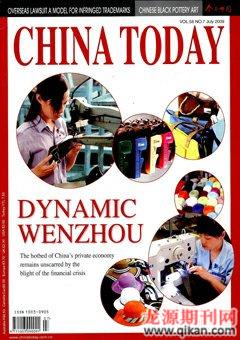In Memory of Jordan M. Phillips
ZHANG YAN
The greatest contribution
of the Phillips couple to
China may be their
organization of massive
donations of medical books.
IN the vocabulary of the Chinese, “Bethune” is the ultimate synonym for the noble figure.Norman Bethunes reputation was made in the anti-Japanese war period when the Canadian physician trudged the frontiers under heavy gunfire to treat the great many Chinese wounded. Adding virtual martyrdom to his heroic qualities, Bethune eventually died in the anti-fascist battlefield, from exhaustion and complications contracted from surgery. “What kind of spirit is this,” asked Mao Zedong in his famous 1939 article “In memory of Norman Bethune,” “that makes a foreigner selflessly adopt the cause of the Chinese peoples liberation as his own?” “Bethune spirit,” he answered, “is utter devotion to others without any thought of self. It was shown in his great sense of responsibility to his work, and his great warm-heartedness towards all comrades, towards all people. ”

Forty years later, an American gynecologist, Jordan M. Phillips, came to a struggling China – one recovering from the ten-year rampage known as the “cultural revolution” but one which had just started its new era of reform and opening-up. He knew of Chinas ancient civilization and her enormous population but was surprised to find physicians unaware of the development of modern medicine, and that the medical books once available had been shunned as “capitalist poison.” His own conscience as a physician nagged him to do something to sweep away this intolerable darkness. Phillips decided his primary task was to help modernize Chinese medical practice. That became a 30-year endeavor. He organized shipments to China:seventy 20-ton pallets of donated medical books, and surgical instruments which were then distributed to thousands of Chinese hospitals, medical universities, colleges and libraries. To ensure these donations made it, he and his wife Mary financed more than 80 trips for themselves over 20 years.

Jordan M. Phillips was born in 1923 and by the time his interests took him East, he was already a gynecologist of considerable repute in America. His greatest contribution to medicine was the introduction of the gynecological laparoscope from Europe. This advanced technology solved some difficult surgical problems and caused a great sensation in the “new world,” even today viewed as an important milestone in gynecology. Philips founded the American Association of the Gynecologic Laparoscopists in 1971 and remained its honorary president until his death.
By 1979, the newly retired Dr. Phillips and his wife Mary came to visit China for the first time, on the tail end of an academic symposium in South Korea. It was not the Great Wall or Forbidden City that most absorbed him, but the conditions for medical practice in China. It was while visiting hospitals and medical universities he discovered the severe shortage of medical books, and the technology that lagged way behind current international standards. Conversation with Chinese colleagues revealed these conditions were the aftermath of the tumultuous “cultural revolution.”


